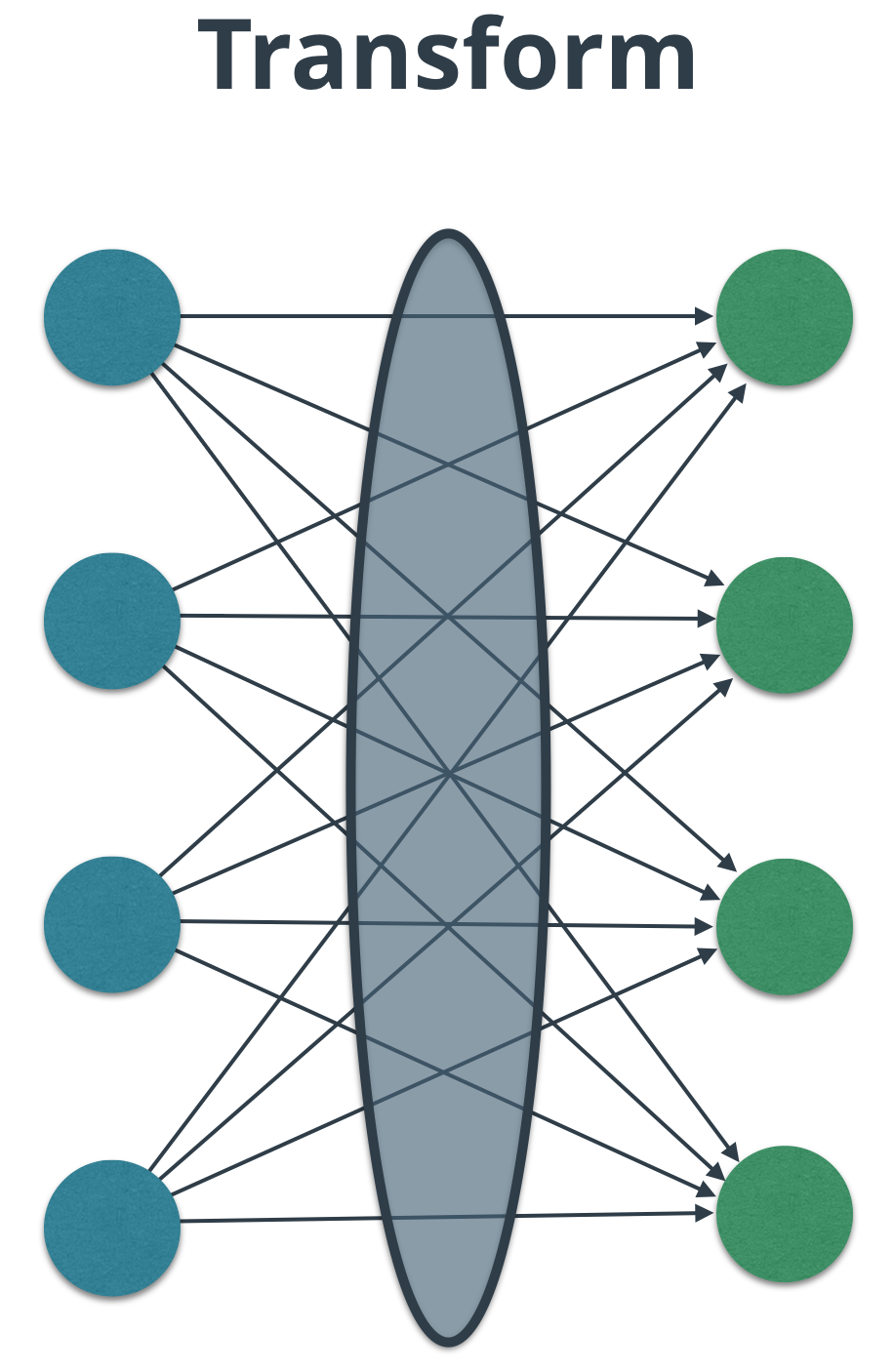24_动手实现TensorFlow–线性变换Linear_Transform
经过上一节课的完善,我们的MiniFlow已经可以像神经网络一样接受输入数据,产生输出数据了。但是神经网络还有一个重要特征就是可以通过训练逐渐提升精度。但我们只有一个Add节点,这是无法提升精度的。为了达到提升精度的目的,我们引入一个比Add节点更有用的节点类型:线性节点。
线性节点
在“神经网络”章节中我们曾经提到过,一个简单的神经网络依赖于:
– 输入input x(向量)
– 权重weight w(向量)
– 偏置bias b(常量)
O是输出。
这是最简单的线性节点,我们知道神经网络是可以通过反向传播更新权重值的,当前我们先不进行处理。
class Linear(Node):
def __init__(self, inputs, weights, bias):
Node.__init__(self, [inputs, weights, bias])
# NOTE: The weights and bias properties here are not
# numbers, but rather references to other nodes.
# The weight and bias values are stored within the
# respective nodes.
def forward(self):
"""
Set self.value to the value of the linear function output.
Your code goes here!
"""
v = 0
for i in range(len(self.inbound_nodes[0].value)):
v += self.inbound_nodes[0].value[i]*self.inbound_nodes[1].value[i]
self.value = v + self.inbound_nodes[2].value
pass
线性变换
线性代数很好地反映了在图中层之间转换数值的想法。 事实上,变换的概念正是层应该做的 — 它将输入转换为多维的输出。
请注意层之间的连接:

由于权重、输入经常是矩阵形式,所以我们的Linear函数也应该可以处理矩阵运算:
class Linear(Node):
def __init__(self, X, W, b):
# Notice the ordering of the input nodes passed to the
# Node constructor.
Node.__init__(self, [X, W, b])
def forward(self):
"""
Set the value of this node to the linear transform output.
Your code goes here!
"""
inputs = self.inbound_nodes[0].value
weights = self.inbound_nodes[1].value
bias = self.inbound_nodes[2].value
self.value = 0
self.value += np.dot(inputs, weights)+bias
在这里我们用了numpy的点乘dot()以及numpy的矩阵相加,感兴趣的小伙伴请参考numpy的文档
传入数据
在nn.py中我们传入数据到miniflow:
mport numpy as np
from miniflow import *
X, W, b = Input(), Input(), Input()
f = Linear(X, W, b)
X_ = np.array([[-1., -2.], [-1, -2]])
W_ = np.array([[2., -3], [2., -3]])
b_ = np.array([-3., -5])
feed_dict = {X: X_, W: W_, b: b_}
graph = topological_sort(feed_dict)
output = forward_pass(f, graph)
"""
Output should be:
[[-9., 4.],
[-9., 4.]]
"""
print(output)
完整代码链接详见github:https://github.com/vvchenvv/Self_Driving_Tutorial/tree/master/Class1/24_Linear_Transform

发表评论
Want to join the discussion?Feel free to contribute!